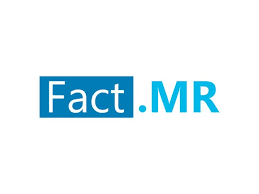Clinical Reference Laboratory Market Forecasted to Hit USD 260.2 Billion in 2025 Through Precision Diagnostics

The global clinical reference laboratory market is experiencing significant growth, valued at US$ 234.5 billion in 2023 and projected to reach US$ 412 billion by 2033, expanding at a compound annual growth rate (CAGR) of 5.8%. This growth is driven by the increasing demand for rapid and precise diagnostic testing, fueled by the rising prevalence of chronic and infectious diseases such as cancer, tuberculosis, and cardiovascular disorders. As healthcare systems worldwide prioritize early detection and personalized treatment, clinical reference laboratories are becoming indispensable, offering advanced testing services that support accurate diagnoses and tailored therapeutic pathways. The market’s expansion reflects the growing reliance on these facilities to meet the evolving needs of modern healthcare.
Technological Advancements Fueling Innovation
Technological innovation is a cornerstone of the clinical reference laboratory market’s growth. Advances in areas such as hematology, molecular biology, and digital pathology are enhancing the precision and efficiency of diagnostic testing. For instance, the introduction of Mindray’s BC-700 Series hematology analyzers in March 2022, designed for small-to-midsize laboratories, integrates complete blood count (CBC) and erythrocyte sedimentation rate (ESR) testing, streamlining diagnostic processes. Additionally, developments in sample preparation and data management are improving turnaround times and accuracy, enabling laboratories to handle increasing sample volumes. The integration of artificial intelligence, as seen in PathAI’s acquisition of Artificial Intelligence Technology Solutions in March 2022, is strengthening digital pathology capabilities, further driving market growth by enhancing diagnostic precision and scalability.
Rising Disease Burden Driving Demand
The global burden of chronic and infectious diseases is a key factor propelling the clinical reference laboratory market. With 10 million individuals affected by tuberculosis worldwide in 2021, and a growing incidence of cancer and other chronic conditions, the demand for diagnostic tests to identify biomarkers and pathogens is surging. Clinical reference laboratories play a critical role in characterizing these diseases, enabling early intervention and effective treatment plans. The increasing prevalence of lifestyle-related disorders, such as diabetes and hypertension, further amplifies the need for advanced testing services. As populations age, particularly in regions like Europe and North America, the demand for clinical laboratory services continues to rise, underscoring their vital role in addressing global health challenges.
Regional Dynamics and Market Leadership
North America holds a leading position in the clinical reference laboratory market, accounting for 35% of the global market share in 2023, driven by its well-developed healthcare infrastructure, favorable regulatory environment, and high disease prevalence. The United States, in particular, benefits from the presence of major players like LabCorp, which expanded its capabilities through the acquisition of RWJBarnabas Health’s outreach laboratory in August 2022. Europe is another key market, with Germany witnessing increased demand due to rising awareness of preventive health screening and the adoption of advanced technologies. The Asia-Pacific region is poised for rapid growth, fueled by expanding healthcare investments and a growing elderly population in countries like China and Japan. These regional trends highlight the global demand for clinical laboratory services and the market’s potential for continued expansion.
Strategic Collaborations and Competitive Landscape
The clinical reference laboratory market is highly competitive, with key players like Quest Diagnostics, Sonic Healthcare, and OPKO Health Inc. employing strategies such as mergers, acquisitions, and partnerships to expand their consumer base. For example, TriCore Reference Laboratories opened a new branch lab at New Mexico State University in December 2020, processing over 15,000 COVID-19 tests and demonstrating the market’s responsiveness to public health needs. Collaborations between laboratories and risk management providers are also boosting growth by enhancing service offerings and operational efficiency. While local vendors pose challenges to global players in terms of customer acquisition, established companies are countering this through strategic alliances with health plan providers and integrated delivery networks, ensuring sustained market dominance.
Challenges and Future Opportunities
Despite its strong growth trajectory, the clinical reference laboratory market faces challenges, including high operational costs and complex regulatory requirements. The need for continuous investment in advanced technologies and compliance with stringent standards can strain smaller laboratories. However, these challenges are being addressed through automation, AI integration, and value-based outsourcing, which enhance efficiency and reduce costs. The market is also benefiting from growing public-private investments in research and development, particularly for genome-based testing and preventive screening programs. Looking ahead, the adoption of cutting-edge technologies and increasing awareness of early diagnostics will continue to drive demand, positioning the clinical reference laboratory market as a cornerstone of precision medicine and global healthcare innovation.
- Information Technology
- Office Equipment and Supplies
- Cars and Trucks
- Persons
- Books and Authors
- Tutorials
- Art
- Causes
- Crafts
- Dance
- Drinks
- Film
- Fitness
- Food
- Spellen
- Gardening
- Health
- Home
- Literature
- Music
- Networking
- Other
- Party
- Religion
- Shopping
- Sports
- Theater
- Wellness



